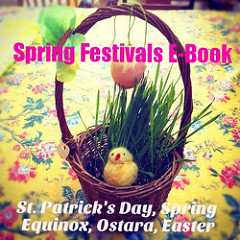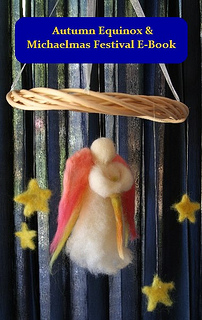Fiction Bid
I appears that I didn’t get the fiction job I bid on recently.
It’s a shame because it would have been my first taste of editing fiction and would have required me to grow and learn new stuff. I suspect I bid too high, but I prefer to err on the side of valuing my time and work appropriately and losing jobs, than killing myself working for peanuts.
In coming up with my bid, I spent a couple of hours reading over a very long and intricate book proposal and then several sample chapters. I made an estimate of the hours it might take me to do the job, evaluated the (first-time) author’s writing, and provided him with some feedback and a few sample edits of short passages (so he could see how I would edit his work). My analysis concluded that while the author’s plot, characters, and story might indeed be adequate and interesting enough to get published, he had about 25-30% more words than were really necessary to tell the story. I figured streamlining and simplifying the text to make it friendly to the reader would require a fairly heavy edit: I would have had to touch nearly every line in the 170,000 word novel. That prospect is scary to me, given that authors frequently are fragile creatures.
It might not have been my bid though. I might have been too heavy-handed with the prose. That’s the balance the editor has to achieve, the way I see it. That is the key to editing fiction. The editor must find the perfect degree of involvement and that depends entirely on the specific work and the specific author. Oftentimes, an author expects me to read his/her mind to know what degree of involvement they want me to have. This is true when I’m editing non-fiction too. However, my experience is that non-fiction authors are often really open to revisions that improve their work. Fiction is more emotional.
I asked this prospective client, “What level of editing are you looking for? Substantive editing? Copyediting?” (and provided him with definitions and examples of both types).
He said, “I believe my best answer to this question is, unfortunately, a very positive, ‘I don’t know.’ I can only admit that I am too close to the work to objectively attempt to edit the material and would trust in an editor to have the reader’s best interest at the heart of their decision making. At this point I need to secure the best editing job available as if I were going to self-publish the first novel in the series for a June release.” (See what I mean? He’s a very wordy guy.)
I took him at his word and evaluated the text with the reader’s best interest at heart, assuming there might not be any other editor (such as an aquisitions editor at a publishing house) intervening on the reader’s behalf.
In a way, I’m not sorry to see it go to someone else. I don’t really feel like justifying every single change, every single decision I make. Still, this novel is the first of six planned novels, and a long-term gig like that–if he actually managed to write a six-novel series–might have been nice. C’est la vie!








February 1, 2006 at 12:54 pm
I would have been suspicious if I thought I had to do that much work on a piece, basically rewriting it in a different style. But it does raise a question for you as an editor, how would you have edited somthing like Faulkner? Or on the other side something as spare as Hemmingway? I think you are absolutely right to acknowledge the inherent power of an editor to harm as well as enhance, so maybe what you did was, in effect, tell this guy that you were not the editor for him. And more importantly, you recognized the writer didn’t know what kind of writer he was yet.
February 1, 2006 at 1:23 pm
Yes, evaluating the manuscript set off all kinds of bells in my head. I don’t want to rewrite others’ books; I want to write my own. I want to guide and help an author say what s/he needs to say. I have no desire to “harm” a work, or to get halfway through a project and find that the author and I are not a good fit, which is why I sent this client some sample edits. Honestly, I didn’t touch every line; that was an exaggeration. However, enough of it was sticky/confusing/overly complicated that I would have had a lot of work on my hands.
I don’t think I have enough faith to edit someone like Faulkner. (We worked really hard on The Sound and the Fury when I was in high school on the Academic Decathlon team–Yes, I am a geek. I haven’t touched Faulkner since then.) Hemmingway I think I could handle. Spare, hard, precise–these styles, I get. Clean, controlled, clear, I get. Deliberately florid, grandiloquent prose (especially when it’s there simply because it’s “expected” in Sci-Fi/Fantasy), I don’t really get. A little of that goes a long way to place the reader in the correct world/time. Balance is the key. I think that readers can often get stuck in the words and forget to look where they’re going in the story. And that, I believe, is often why novels die in the reader’s hands.
However, I happen to love Salman Rushdie because of his rich prose. I feel like I’m weaving a tapestry with him when I read Rushdie: somehow his language is the warp and my reading it weaves the weft. Midnight’s Children is one of my favorites. (I have a thing for stories about India and for Indian authors.) I like smells, colors, shapes, textures, and feelings to come through. I just tend to prefer that they not all come in the same sentence. Give me time to experience each one.
February 1, 2006 at 1:29 pm
I can’t help but think this worked out exactly the way it should. Your author gets to go find out (with another editor) what he really wants and needs. And then if he realizes he needs someone like you he comes back, is more agreeable to your work, and you do it at your price.
And good for you for not selling yourself short! I remember you telling me at one point how scary it was to turn work away. I hope it keeps getting easier.
February 1, 2006 at 1:48 pm
Purple prose is usually a sign of an inexperienced writer, but it can also be someone who has too muich of a particular witer he has read inhabiting his body, or one who hasn’t discovered who she is yet.
And on the other hand there’s you, using warp and weft (no woof?) in casual conversation. I lay wreaths at your feet. Get to writing that novel.
Did you read the Maso I linked to in my Ponytail story? I have that problem with her novels, she loves the language so much that it seems to me she gets lost in it. And yet, maybe that is part of the dreamtime experience.
February 2, 2006 at 12:12 pm
I feel pretty good about the way it seems to have worked out. He hasn’t actually told me to go jump in a lake, but I think enough time has gone by, considering his schedule, to assume that he found some schmo to do it for less. There are plenty of starving editors out there willing to work for next to nothing. I cringe whenever I hear a newbie say that s/he is willing to do projects for free to get experience. Each time one does that, s/he devalues the work of professional editors.
You don’t get what you want in life if you aren’t willing to ask for it and work toward it. My policy is to raise my rates as often as possible, and I try to do it with each new client that comes along. I want to work smarter, not harder. It is scary to turn work away. Yet I’ve observed that each time I accept a project, another one shows up immediately to compete with the first project for my limited time. The gods like to laugh at mortals–that’s the only way I can explain it.